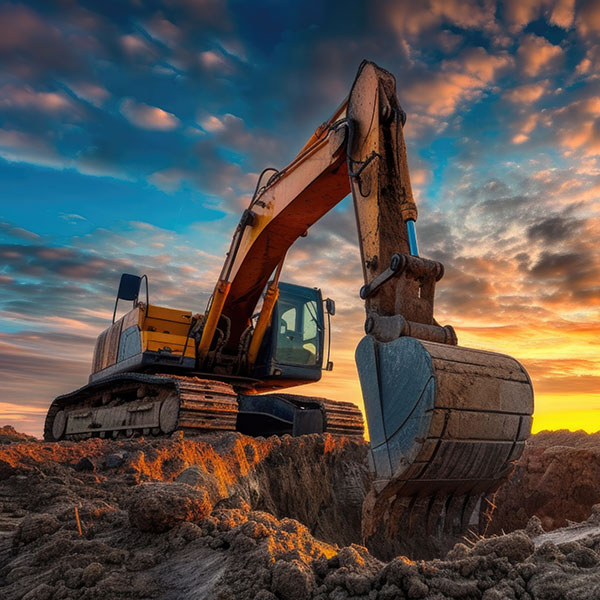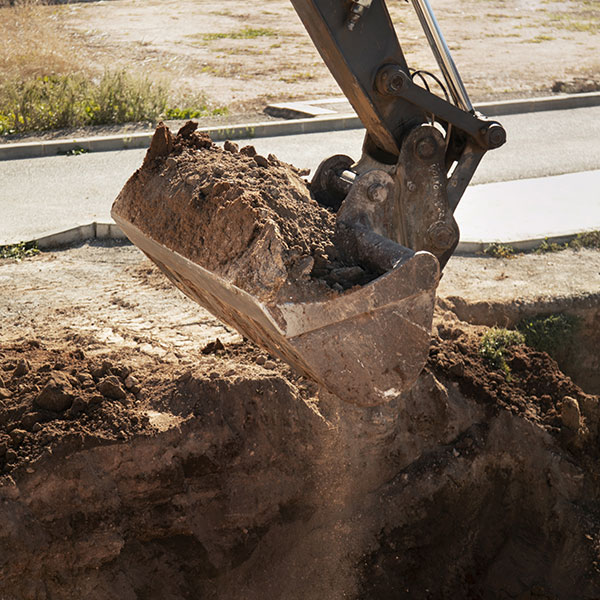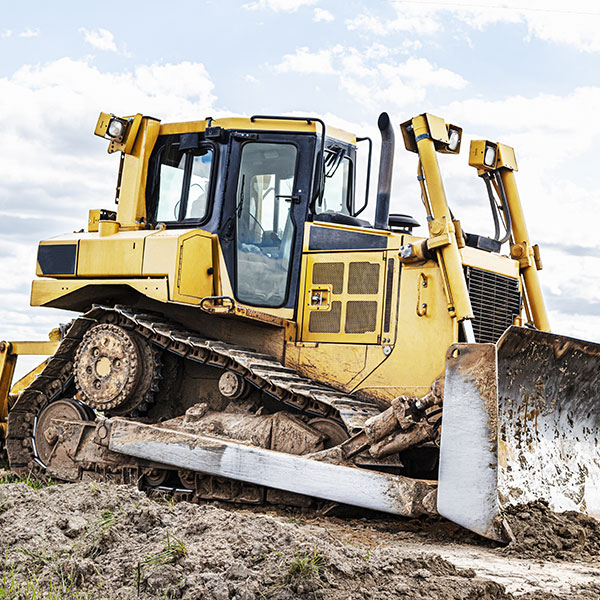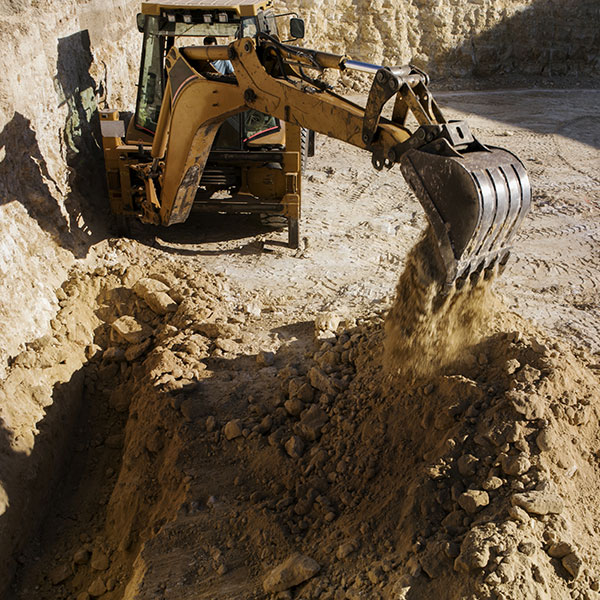
Land Clearing Excavation – What You Need to Know Before Starting
What is land clearing excavation? Land clearing excavation is one of the most important, first steps for any construction or land development project.
Before we can pour a foundation or install utility lines or any development of a structure can be made, the land needs to be cleared and prepared.
Processes that are necessary for home construction, urban development and road construction, even agriculture.
If you don’t get these before clearing the land, it may not drain well, provide a stable base for buildings, or you may have to deal with delays because of code violations or environmental issues.
Whether you are a home owner, a developer, or a contractor, then knowing what is involved in land clearing excavation – and why you need it – can help you to plan more effectively, and also to avoid costly mistakes.
In this post, we’re using our experience in the industry to guide you through land clearing excavation, what it is, how it’s different from regular excavation, and introducing you to the type of contractor you’ll want to work with.
The right equipment and professional help with site clearing excavation will help your project start off smoothly in the right direction.
Land Clearing Excavation: What Is It?
Land clearing excavation is the process of clearing a site of vegetation, trees, debris, and topsoil with the intention of preparing the area for construction or landscaping.
Land clearing removes all surface obstructions, while excavation is the sculpting of the land through the digging, leveling, and grading of the desired elevation.
Combined, those services keep the site clean, stable, and buildable.

What Types of Projects Need Land Clearing Excavation?
Grading and Grubbing — Grading and grubbing services are essentially the bread and butter of what land clearing excavation contractors provide to all types of development projects, including residential, commercial, industrial, agricultural, and municipal projects.
Regardless of the size and design of your project, the proper construction of the site is necessary for the success of the construction work and long-term settling of the building and property.
It must be cleared of trees, brush and stumps, then excavated, leveled and prepped for a home, as well as for a foundation, a septic system and utilities.
Road or driveway installation: Whether it is a long private drive or public access road, land clearing excavation is necessary to clear out the vegetation, level the surface, and produce a solid foundation to lay paving or gravel.
Commercial construction projects and buildings: The creation of office parks, warehouses and retail stores start with site clearing and excavation for all construction to meet zoning and engineering requirement per acreage.
Agricultural land preparation: Land clearing excavation is commonly used by farmers and landowners to rid their property of trees, boulders, and uneven ground so they can establish productive farmland or pastures for grazing.
Utility or drainage work: In-ground utilities, culverts or stormwater need to be dug carefully through the cleared and surveyed land so that drainage flows, and access is good.

Popular implements for Land Clearing Excavation
Land clearing excavation is the process of using customized heavy-duty equipment and tools to clear off the land, shape it and prepare it for construction. The optimal machines will depend on the terrain on site, as well as access, and exactly what you’re trying to accomplish with the project—but many machines are frequently used on nearly all job sites.
Bulldozers: Extremely powerful machines that are designed to push huge amounts of dirt, debris, and vegetation out of the way. They are particularly well suited for rough grading and forming earth embankment.
Excavators: With hydraulic arms and buckets for digging trenches, removing stumps, uprooting trees, and lifting heavy materials.
Skid steers: Small and agile, skid steers are great for working in close quarters and performing small clearing and grading jobs.
Forestry mulchers: Machines that grind trees, brush and undergrowth directly on site, converting vegetation into mulch that can be re-used or removed easily.,
Dump Trucks and Haul-off Trailers: After the land is cleared, dump trucks carry the debris away from the site where it can be disposed of or recycled so the area remains clean and safe.
Chainsaws and hand tools: Used for selective clearing near structures or utilities, chainsaws and hand tools offer delicate control when heavy machinery won’t get the job done.

Types of Equipment for Land Clearing Excavation
Excavation for Land Clearing – Specialized heavy equipment, tools are essential for professionally, efficiently clearing and grading land, getting it in shape for construction.
The best mix of machinery depends on the terrain of the site, its access points and the goals for the project — but a number of key pieces of machinery tend to be used on most jobs.
A Step-by-Step Process Overview
When it comes time to clear land, excavation is organized to benefit your site; as land is made build-ready, building code requirements must be met.
The steps are more or less the same for all the contracts, though obviously, each project has its own scope and location: residential, commercial, agricultural from start to finish.
Site assessment and design
All projects begin with an in-depth site analysis to assess vegetation, topography, water management and access. These data are used by contractors to create a site-specific clearing and excavation plan.
Permits and approval (if required)
In some areas there are permits that need to be obtained prior to land clearing excavation, especially if the land is in an environmentally sensitive area.
This process ensures all of the appropriate local regulations and zoning laws are taken care of before construction begins.
Vegetation/Debris Removal
Rec Crews remove trees, brush, stumps and all surface debris. This allows room for excavation equipment and things that may get in the way of grading and construction.
Excavation and earthmoving
Equipment is used to dig, cut or fill areas to create the appropriate site slope or elevation and make it level for a foundation, driveway, road or other projects.
Grade and compact soil
The ground is flattened and formed and compacted to provide a stable base that won’t shift or settle over time.
Final inspection and site readiness check: During the final walk-through, the site checking process ensures the one in question is in accordance with specifications and completely ready for construction and/or development.

Environmental and Regulatory Issues
Land clearing excavation is more than just removing a handful of trees and a layer of dirt—it also requires careful attention to environmental protection and regulatory compliance.
A variety of rules and permitting may apply before work can start, depending on your location. Not following them can result in fines and project delays or even lead to lawsuits.
Local permits and land use restrictions
They are many localities that require permits for clearing land, as in municipal ordinances or zonings where they are classed as residential or close to conservation areas.
Zoning laws may specify what can be cleared and how much land can be moved, and inspectors often review plans before allowing excavation work.
Wetland, wildlife, and native tree protection
If you have cleared land near wetlands or homes to protected species, you will need to treat it very carefully. In some regions, certain trees or flora are protected, and permission is needed prior to their being harvested.
Erosion and drainage planning
The excavation and grading of land must be planned to protect against erosion and control stormwater runoff. Contractors also commonly use silt fences, retention basins or swales to protect local properties and water sources.
Disposal or recycling of cleared material
Material cleared from the land must be hauled away and legally disposed. Others, such as mulch or timber, may be reused or repurposed, lessening the environmental footprint and accompanying cost.

Costs and Timeline: What You Can Anticipate
The cost of land clearing excavation can differ extensively depending on what the project involves.
Among the important cost factors are the size of the lot, the density and type of vegetation, difficulty of the terrain and how much it can be traversed by equipment.
Thick underbrush and large trees can take longer to clear and necessitate more labor and specialized equipment, which in turn may drive up the total cost. Likewise, a rocky or rough location might require even more grading or excavation in order to hit project specifications.
Depth and area of the digging will be another huge issue. These costs will be lower when the excavation is shallow for surface work like a driveway or to get down to a sewer line — and higher when digging is deep for, say, a basement, a drainage system or utility trenches.
Prices may include charges for haul-off and disposal of debris, permit fees and if required by local ordinances for project completion.
The timeline for the land clearing excavation projects varies from one day for small residential parcel of lands to several weeks for the large or complicated commercial jobs.
The most accurate way to receive cost and time estimates is to have an on-site evaluation with an experienced contractor that will take into account your unique situation and develop a personalized plan.

Before Hiring Someone to Do Land Clearing Excavation
Choosing the right contractor for clearing your land through excavation can be the difference between a one-time, well executed project without any unexpected issues that suddenly seem to pop up with the other guy with dump truck vs a first rate disaster with a big bill to follow.
You must make sure to hire a professional experienced in land clearing and excavation—not one over the other. These two services need to work together to clear your site for the building to be able to commence and you really want your contractor to be able to deal with the whole package.
Begin by ensuring the contractor is licensed and insured. This will not only relieve you of liability, but will also verify that they are meeting the necessary legal standards to do excavation work in your region. Review customer feedback and ask for references to inquire about their performance on past work.
It is also valuable to ask about the type of equipment they do use. A reputable contractor will have the necessary equipment in good working order for the amount of work you need done. They should also be familiar with local permits and environmental regulations — and, ideally, take care of that paperwork for you.
Finally, opt for an someone who will communicate effectively with you and provide you with a set timeline. An informed and timely contractor is crucial to a project that remains on track from the first scoop to final grade.

Conclusion
Ground clearing excavation is essential part of developing a site to be used as a construction site.
It’s so much more than the process of removing the trees, or leveling the ground—it’s about establishing a safe, secure, and code-compliant foundation for everything that comes after.
From new residential home sites to steel and specialty flare towers, a fully cleared and prepared site is the vital infrastructure required for your project’s success.
When you do it right, a land clearing excavation can avoid any such issues as drainage problems, erosion, structurally unsound landscapes and other expensive construction delays.
It is a matter of careful planning, proficient handling of equipment and compliance with environmental, as well as local, restrictions.
That’s why finding the right contractor is just as crucial as the project itself. An experienced and well-informed crew will not only get the job done quickly, but maintain your project within budget and on time.
Before you can start a new construction project, you should have a clear understanding of how land clearing excavation works, so you can determine any unique needs for your property.
Planning a project in Southwest Florida? Learn more about our specialized services by visiting our Cape Coral Land Clearing page—your first step toward a clean, build-ready site.
Your content goes here. Edit or remove this text inline or in the module Content settings. You can also style every aspect of this content in the module Design settings and even apply custom CSS to this text in the module Advanced settings.